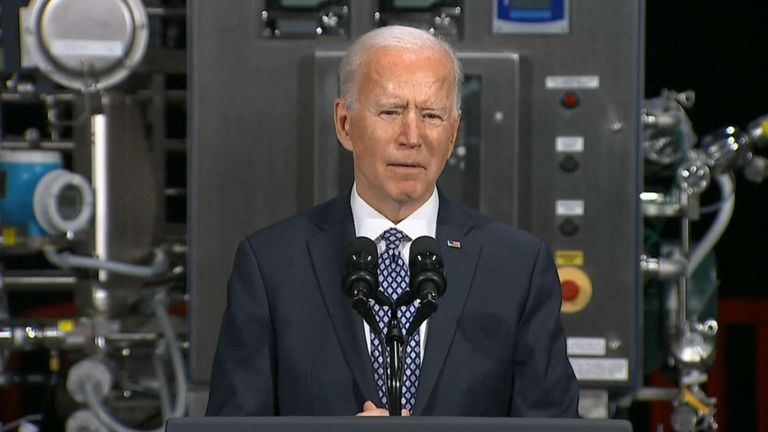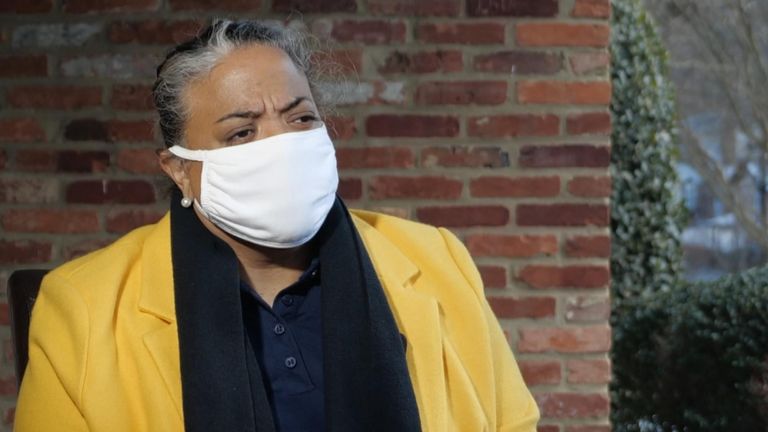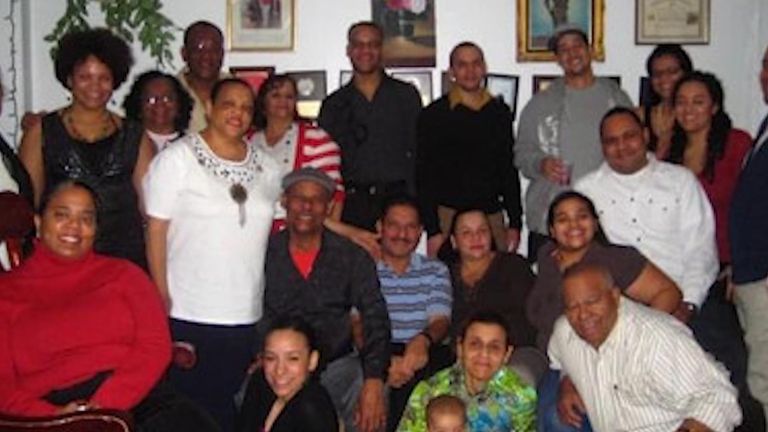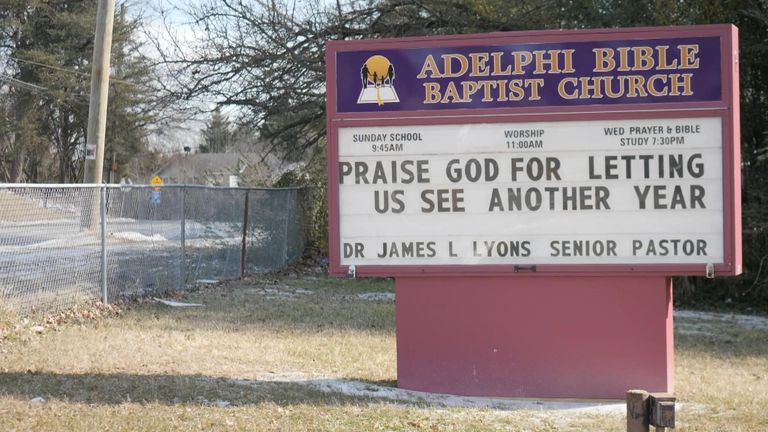America is far from out of the woods with COVID-19.
Yes, deaths are down. Infections, too.
But the vaccine rollout has been heavily delayed by bad weather and supply chain issues.
And on Monday, the total number of people to die from coronavirus in the US surpassed 500,000.
Proportionately, that’s not as bad as the UK or Italy, but it’s still a staggering figure.
One thing remains starkly obvious: inequity remains a huge problem.
New figures show life expectancy fell by a full year in the US in the first six months of 2020 – but the gap between black and white Americans is now six years.
That’s the widest it’s been in more than two decades. And when it comes to the vaccines, communities of colour appear to be struggling.
Deni Taveras has seen that up close – and plenty of grief, too.
She lost six members of her family to COVID-19 – and 16 of them were infected.
Deni showed Sky News a photo of the last time they were all together, before pointing at everyone hit or overcome by the virus. It’s a sobering and bleak insight.
“It was devastating,” she said. “I didn’t see it coming and the thing is, as immigrants, a lot of people don’t believe or they think of themselves as invincible… or don’t pay attention to the requirements or obey the recommendations.”
Deni is a council member in Prince George’s County. The ZIP code she works in – 20783 – still has the highest number of infections and deaths from the pandemic, and she believes communities of colour like hers are being squeezed out.
“To me, the fact that we don’t have a testing site in the ZIP code, we don’t have a vaccine site in the ZIP code, to me speaks volumes.”
Deni thinks it is self-defeating oversight at best.
“Not providing vaccines to this population costs everybody,” she said. “We are your frontline workers. We’re your essential workers. We’re the ones out there making sure that things get done, that snow gets ploughed, that your streets get salted, that your grocery stores are stocked.”
On University Boulevard, a busy crossroads at the heart of the community, the streets are abuzz with people. Young men cut coconuts on the side of the road as Spanish music plays out. Many are wearing masks, but they are also hugely exposed. Lots of them live in crowded homes. Many don’t have health insurance and work in front-facing jobs.
Deni does have hope the Biden administration will turn things around eventually – as the president believes in science and is willing to follow advice from those who know more.
But there is a lasting legacy issue here – a suffering that endures and will be hard to walk back, suffering that Deni believes could have been largely avoided.
She says the decline in life expectancy has “cost us money. It cost us generational wealth. You know, again, to me it’s part of the structural racism challenges that we continue to face as a people”.
When it comes to vaccines, scepticism is often blamed for low uptake. But it’s often a lot to do with a lack of access – to pharmacies, hospitals, providers and transport.
As we’re driving away from the area, we see a sign by a church that reads “Praise God for letting us see another year”.
In America, it often feels like faith runs as deep as inequity.



